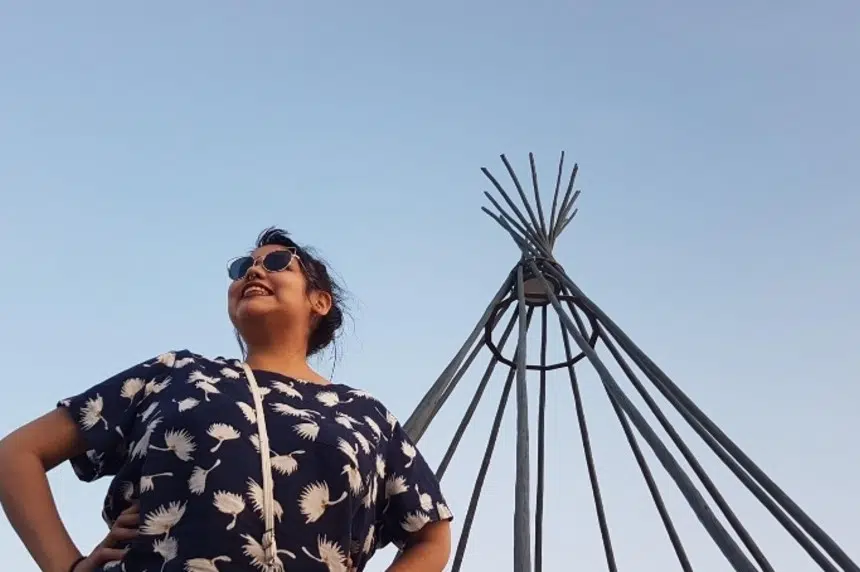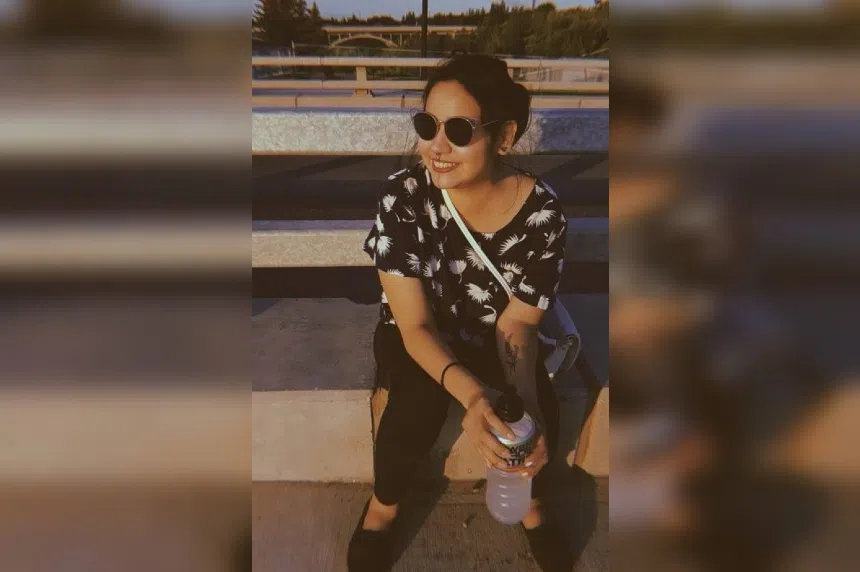Savannah Noon was 25 years old when she was diagnosed with COVID-19.
The diagnosis came on Dec. 3. Just 23 days later, the woman from the Thunderchild First Nation died at St. Paul’s Hospital in Saskatoon.
This is all according to her uncle, Dwayne Noon. Noon said Monday he was unaware of any pre-existing health conditions with the 25-year-old.
“Not that I know of,” he said. “She was a healthy, young, vibrant person.
“It just blows you away, somebody so young.”
Of Saskatchewan’s 165 COVID deaths, only four have been people in their 20s. Noon said Savannah’s family knew her as “Savvy,” a nickname given to her by her grandfather.
“She was full of savvy, you know? She had a zest that was infectious — wanting to learn, wanting to be an integral part of something that was growing and something that was building,” he explained.
Noon said the 25-year-old had a big interest in photography. He said he was reviewing some of her catalogue of photos Sunday night, with some of her friends mentioning that “Savvy” always had a camera everywhere she went.
Noon said his niece’s battle was lengthy, but the family had hope she would fully recover from the diagnosis.
“We were optimistic because at some point, probably midway into that last week, she was actually making some gains. But that’s one thing about COVID-19; it wears havoc on (and) basically destroys your lungs,” Noon said.
Noon also is the pandemic co-ordinator on the Thunderchild First Nation. He said the community went COVID-free for 243 days before its first case on Nov. 6, a case involving someone in their 20s.
Article continues below photo
That case was connected to an outbreak in neighbouring Prince Albert. Noon explained the community has only hit a maximum of 11 active cases twice.
That’s something it is currently dealing with; the first time it hit the plateau was a month ago. Then, the community was able to bring that number back down. Now, there’s a number of homes in isolation.
Noon said he hopes Savannah’s death is a reminder to all, including those within his community, that COVID is no joke.
“If we thought we were immune at (Savannah’s) age — we’re not … COVID doesn’t care,” he said.
“Our community has gone all out … Unfortunately, it does come into our communities. If we were vigilant before, we’re definitely on high alert now.”
The community has administered more than 1,000 COVID tests since October, when it got its own testing station. It has perimeter security set up with contact tracing ongoing, along with taking the temperature of all who enter.
Yet with all the precautions, Noon said the loss of Savvy will be felt by the family and those in the community.
“(It’s difficult) when you see something like the passing of someone so young and vital (with) so much future and potential there. She was a little ball of energy. I call her a light. Seeing her passing … COVID-19 stole her from us,” he said.
“We had so many plans. She was an avid photographer. Some people have a gift.”
In tying in with Savvy’s love for photography, Noon said he was astounded of how gifted the 25-year-old was. He said she always wanted to learn, to listen, and learn about the Cree culture.
The Noon family wants to carry on the legacy, such as using her art, creating an exhibit, and a scholarship in her name.
“This way, even though COVID-19 has stolen her from us, we are mindful that we are in the middle of that kind of time,” he said.
“The impact that she made with those younger around her (was special), taking the time to do art with the nephews, those kinds of things. We’re going to try and fill that void (and) just keep doing what she was doing, passing on the torch, passing on her love for photography.”
Photography within the Noon family dates back to Dwayne’s great-grandfather and grandfather, who were among the earliest people in the northwest to not only get a camera but also with the right chemicals to actually produce photos.
Dwayne said both he and Savannah have looked to carry on that tradition as the years continued.
Now, looking to honour Savannah’s memory, Noon mentioned looking for a day to annually honour her life — something such as ‘Savannah Day’ on the Thunderchild First Nation.








